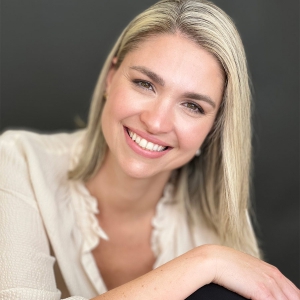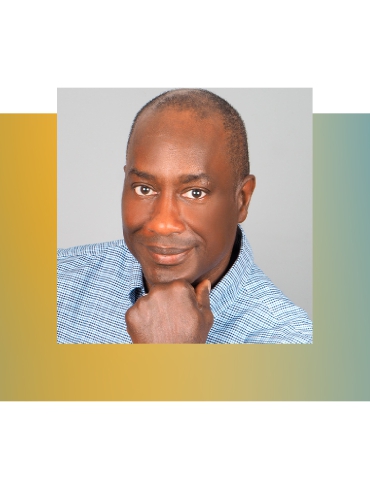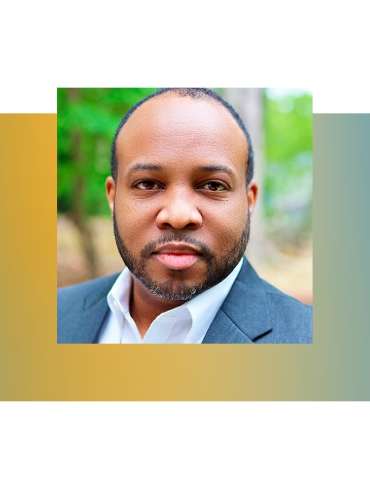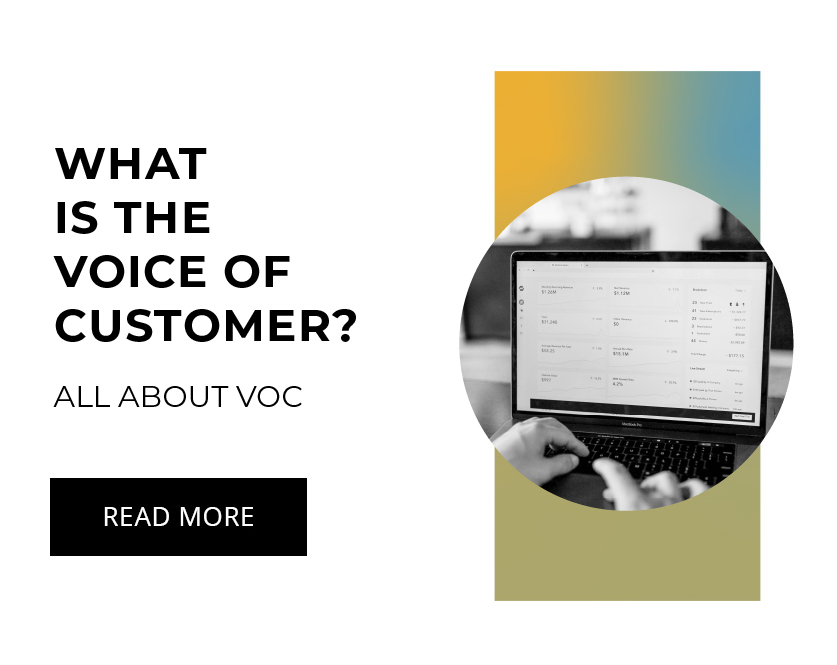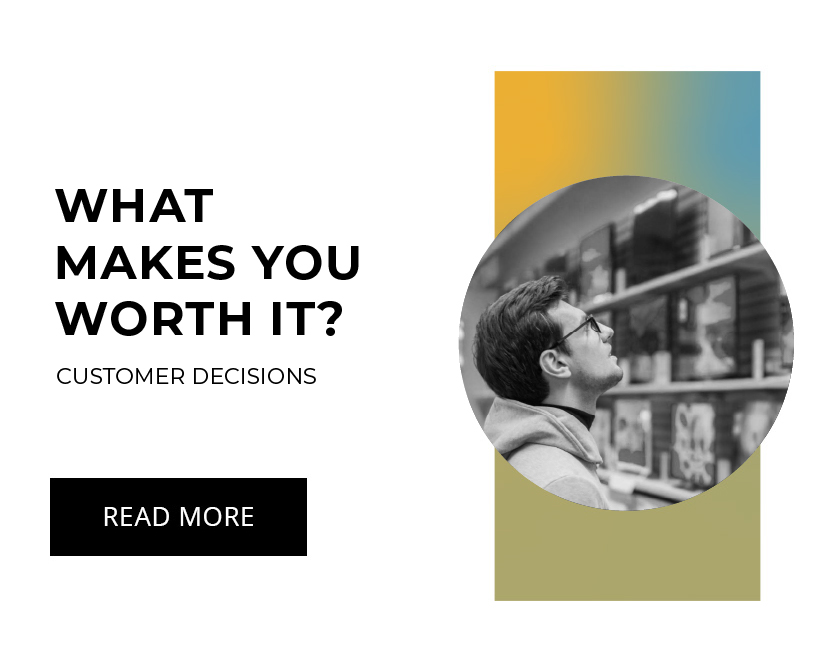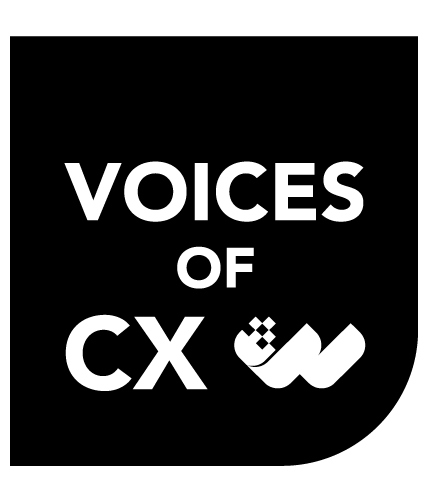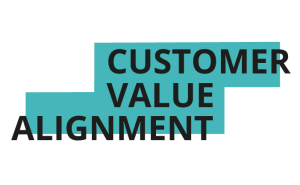About Prof. Marcus Cunha Jr.
Professor Marcus Cunha Jr. is the director of the Master of Marketing Research program (MRR) at UGA. It is the first and most successful program of this nature (first class graduated in ’81 and a network of 640+ alums). Its students are highly sought after with an employement rate of 100%. The 2017 GRIT report (Greenbook Research Industry Trends) showed that the UGA MMR is recalled three times as often as all the other programs combined.
Professor Cunha holds a Ph.D in Marketing and Consumer Behavior from the University of Florida. Before coming to Terry College of Business at UGA, he previously lectured at the University of Florida, the University of Washington and the Goizueta Business School at Emory University.
Follow Marcus Cunha on LinkedIn
See Marcus Cunha’s profile at the UGA Terry College of Business
Learn more about the Master of Marketing Research Program at UGA
Follow Worthix on LinkedIn
Follow Worthix on Twitter: @worthix
Follow Mary Drumond on LinkedIn
Follow Mary Drumond on Twitter: @drumondmary
Transcript:
Mary Drumond: (00:08)
This is Voices of Customer Experience, a podcast where we bring you the very best thought leaders and practitioners of customer experience and its overlapping verticals such as marketing, analytics, behavior economics, journey mapping and design. Our goal is to help you be better at your job by listening to the experiences and leadership of others who like you have dedicated their careers to improving the dialogue between companies and customers.
MD: (00:36)
Marcus Cunha is a professor of marketing and director of the Master of Marketing Research Program at UGA, Terry College of Business. The Master of Marketing Research Program at UGA is the first and most successful program of its nature and it’s been around since 1981. It’s alum is highly sought after and has a 100% employment rate. Before joining University of Georgia, Professor Cunha taught at the University of Washington and the University of Florida. He holds a PhD in Marketing and Consumer Behavior from the University of Florida. Professor, thank you so much for being on today.
Marcus Cunha: (01:12)
Thank you. Thank you for the invitation to be a pleasure to speak to your audience.
MD: (01:17)
Awesome. Well. Can we start off with you telling our audience a little bit about your career and what you’ve done and how you finally ended up leading the Masters of Marketing Research at the Terry College College of Business over at UGA?
MC: (01:30)
I’m sure when your audience listens to me they are going to be guessing that I’m from Alabama or Mississippi, but I am actually originally from Brazil. I got my undergrad and my master’s in Brazil. And when I was getting my masters, one of my professors came back from his PhD from Europe. He brought marketing research software that’s very popular in Europe, not so much in the US and Jean invited me on the effort to distribute that software and we were very successful at doing that and I also did a lot of training for preparation that acquired the software. At the same time as I was doing my masters, I became interested in a career in academia. So I decided to sell my equity in the company and then came to the United States where I got my phd in consumer behavior and consumer psychology. When I graduated with my phd, my first job out of school was at the University of Washington in Seattle. So I was in Seattle and involved with the technology industry and teaching at the University of Washington for eight years. And then in 2011 I was recruited by the University of Georgia to move to the University of Georgia and also to be involved with the Master of Market Research program, which given my background, made me very interested.
MD: (02:26)
So tell me a little bit about the program that you have there at the University of Georgia.
MC: (03:37)
So the University of Georgia Masters of Marketing Research Program, the MMR program, was the first program of its nature to be established in the United States. The reason why the program was established was because of the needs of things. So the program was founded in 1979 and was inbound by the Coca Cola company and other companies because companies started to realize that data was becoming widely available through scanners, but they didn’t have the skills to analyze that data. So based on that, along with the academia, the marketing department and professionals in the industry, the first curriculum of the MMR program was designed to serve the needs of the industry.
MD: (03:51) And these corporate partners that help up found this program, are they still involved in the program today?
MC: (04:00) Yeah, so for example, uh, mark research is part of our board. Coca Cola company is also part of our advisory board and they also endow in the program. So we have the program runs based on endowment from Coca Cola company.
MD: (04:15) And your interest specifically professor, on your bio, it talks about how you’re interested in learning, memory processing, perception, pricing and branding. Are those also some of the things that the program focuses around?
MC: (04:43)
So those interests are based on my like academic research and we bring some of these to the program. So for example, we teach students about behavioral economics and the impact that he has in terms of research in marketing decision making. So we bring elements of judgment and decision making, but more from an applied perspective rather than from an academic perspective.
MD: (04:58) So the program’s been around for 40 years. Is that it? Yes. Is it still the market leader in for the segment? Is it still the best? You know, tell me a little bit about that.
MC (05:04) Yeah, so we are considered the gold standard of the industry, not only because we are the first founded, but also because of the training that our students go through. On a recent research report by the Green Book, it showed that our program was mentioned three times as often as all the other programs combined. Top of mind, you know, in one of the reasons is because of the quality of the training and the quality of the students that we bring from the program, which we have a placement rate of 100% of our students.
MC: (05:39)
Most students receive multiple offers. The class of 2018 the entire class was placed two weeks before graduation.
MD: (05:48) Wow. That’s amazing. Tell me a little bit about the program. How long is it?
MC: (05:52) So it’s an 11 month program. So we start early in the summer, in June and graduate in May. Students are trained both in terms of methods, the statistical methods, research methods, but also they are trained to be consultants. They not only learn how to analyze the data, but how to make that analysis something actionable in terms of insights. So they are their trained also to develop consulting skills. We also have a very experiential learning process because the students participate in corporate projects. So it’s a year long project that’s sponsored by one of the companies that is connected to the program, where they act as if they were researched suppliers and solve a research problem, a problem for discussion. We also have a speaker series where we bring about 24 leaders from the industry to speak to our students so they can stay up to par in terms of what’s going on with the industry.
MD: (06:52)
That’s great. What are the requirements to enter, because I mean, you know, this seems like a topic that would interest most of our listeners who are involved in this industry. So if in case someone is interested, what are the requirements?
MC: (07:05)
So, uh, we try to attract students from a broad perspective. So we, for example, just to give you an idea, the current class has foreign students, they have backgrounds in psychology, some a sort of background in sociology, statistics, a civil engineering in addition to students with business background. We also try to recruit nationally. So we also have this class, we have students from California, from Massachusetts, from Florida, from Tennessee, from South Carolina. We believe there’s diversity is very important for the students to learn. There are also requirements that are standard Grad school requirements such as you need to take an entrance test. You need to have a good GPA. We’d prefer a student who has not tried to avoid quantitative courses because the program’s highly quantitative. And of course, if you have relevant experience in terms of research, that’s also a plus.
MD: (08:04)
And how about people who are working with customer experience? Do you get any candidates who’ve got their hands deep into customer experience programs?
MC: (08:13)
You know, we tried to attack students from this nature and we get some of the students not only in terms of customer experience but usability experience, which is very important to the technology industry because that also help us to place the students in this industry. So for example, we have students that have graduated from our program that are currently at Google, PayPal, Facebook, LinkedIn, Dropbox, which our industry is that for which the customer experience and usability experience is very important.
MD: (08:50)
Imagine being able to pinpoint precisely why your customer chose you over competition or the other way around. How much easier would it be to create gross strategies, secure budget funding, and improve customer experiences? This is what Worthix can deliver through its auto adaptive AI survey. Stop focusing on what and when and understand why your customers buy at Worthix.com.
MD: (09:19)
Have you seen like we know that customer experience is a new industry and that it kind of branched off a little bit from market research a little bit for marketing. You know, it came from all over the place, but it has become extremely important inside corporations. And we’ve seen a lot of interest around this field. Is this something that you’ve noticed happening in market research as well, where there’s been a renewed interest in this aspect of the market?
MC: (09:46)
Yeah, I think there’s even conference now. Like you know, like in terms of customer experience people refer to CX and Ux. Marketing research we see now the MRX. It’s very hard for people to fill out surveys that are super long and not meaningful. We joke that some surveys are so long that you do, you have to, as the respondence age at the beginning and at the end of the session they might have aged in between. So this is a very important area and it’s growing because we need to collect data with a high level of quality, but also we do not need to create a cost for the response.
MD: (10:29)
Right.
MC: (10:29)
So we can collect that data in a way that’s unobtrusive to the participants and you still get high quality to understand why people are acting the way they are.
MD: (10:40)
Right? Absolutely not. Now let me ask you something. Have you noticed since this is something that you know you’ve dedicated your life to, yeah. Helping people become proficient in this field. What is your impression or your opinion about companies who are kind of just winging it or more or less, you know, doing it themselves and they don’t really have a qualified person or a qualified professional backing up their market research efforts?
MC: (11:10)
Yeah, that’s a, that’s an issue in the industry because we have so many tools nowadays such as Qualtrics, Survey Monkey, etc. Now everybody can become a marketing research company. However, the quality of their research is often very, very low. There’ll because people have no idea about sampling, don’t understand the biases and the measurement errors, so we’re giving access, but people need to have the training to properly use this too.
MD: (11:43)
No, I absolutely agree with you. I was at a market research conference a couple weeks ago in New York City and it was all about do it yourself. And one thing that I noticed was that even with all the do it programs that are out there, practitioners don’t feel comfortable using those. Do it yourself methodologies when they have to actually defend numbers to their board or make strategic decisions. So like, you know, the overall takeaway that I had from at conferences that do it yourself is great for internal programs, maybe even for like marketing efforts and pushes, et cetera. But when it comes to actually making strategic decisions that are going to change the course of a business or numbers that you have to defend either with your board or the c suite, people still resort to, you know, the institutes and to vendors and people who are qualified enough to use a scientific method to actually prove those numbers
MC: (12:34)
Because those decisions are very expensive.
MD: (12:38)
Right? Absolutely. And nobody wants to, you know, be responsible or be accountable for those mistakes happening on their watch. Right?
MC: (12:45)
Yeah. Another trend that I see that sometimes it won’t perceive that at least us as researchers perceive as a black box is the channel of automation. A lot of automation is having not only marketing but also in marketing research, but a lot of these automated tools are black boxes. We don’t really know the algorithms running those processes. Right. And a lot of times are proprietary. Nobody wants to share that. So where we see as this black box where to have an input or something and you have an output where we don’t really know what happened during the automation process.
MD: (13:24)
Yeah, absolutely. And how about unstructured data? This is something that, you know, people talk about it all the time. There’s unstructured data all over the internet, especially with reviews and uh, you know, chat bots and social media and there are companies that are mining this data. How reliable is that to actually, you know, try to retrieve voice of customer feedback and, and create statistics upon?
MC: (13:51)
I think those methods by themselves, they might not be that useful because we know when people are posting things, there are selection biases, right? People that are very displeased or very pleased with something will have the incentive to write something about it. However, if we can combine this unstructured data with structured data, where you have information about a person you can match the research or data about that person in do what have what’s called a data fusion in fields that data from reliable sources with this more unstructured sources. Then I think you have our grade level of richness. You can cross validate this data
MD: (14:35)
You’re actually using, you know, correct methods to collect the data, but then you’re backing it up with this unstructured data. Right? Yeah, absolutely.
MC: (14:44)
Yeah, absolutely. Same thing happens in terms of new technologies such as EEG and eye tracking. This biometrics implicit. I talked to many leaders in the industry and the feedback that I get is that those methods tend to be more expensive, they are becoming more affordable, but they’re still combined with more traditional research methods to increase a layer of richness in the data that companies are collecting.
MD: (15:11)
Well, this could be a new trend in market research. What are some other trends that you’ve been seeing, you know from your perspective and your angle, you know, which ones are the ones that fascinate you the most?
MC: (15:23)
I think one thing that we’ve seen recently is this idea of artificial intelligence and also big data and how perhaps we can combine them. So you can see there is like a proliferation of business analytics programs, which are different from Masters of Marketing Research Programs. Those are mostly focused on people that learn how to code to extract from massive data sets and find some relationships between that. So the key difference between a Masters of Marketing Research and a Business Analytics is that the Master of Marketing Research, they’re more about the “whys” and the “hows” rather than just identifying the relationship. It’s very good to learn from a large data set that there is such a relationship, but it’s very important to understand why. So I think big data and artificial intelligence are two big trends that will help us to become better marketing researchers.
MD: (16:20)
And how about like are looking farther into the future to things that might at the moment still be considered far fetched. But at the speed of change that we have nowadays, it might be right around the corner, like, you know, augmented reality or virtual reality. Do you see that applied somehow to market research?
MC: (16:38)
Yeah, that’s what I was going to mention. That virtual reality and augmented reality are things that are going to make a big difference. They are still to some extent expensive, but it can create an entire retail setting in virtual reality and see how introduce your product among others on a shelf, for example and see how people react your packaging and also conduct experiments within virtual reality and see how small changes your product or your message could actually increase likelihood to buy the product.
MD: (17:12)
Well, could this be a way to cheapen qualitative research?
MC: (17:16)
I think this is more on the side of capturing actual behavior
MD: (17:21)
Like focus group stuff
MC: (17:23)
Yeah. I think what you’ve seen is a lot of online focus groups, resources, but I can see how you couldn’t perhaps combine virtual reality and artificial intelligence create a virtual focus group. The person who’s being interviewed thinks that they are interacting with other people, but the conversation is being driven by artificial intelligence.
MD: (17:52)
So cool. I’m fascinated by this stuff. I know there’s stuff that we’re at. Another thing that we’re hearing a lot about is like, like facial recognition when it comes to voice of customer surveys. So some way of recording expressions and you know, features and eye movement and stuff like that.
While customers are giving feedback. What do you think?
MC: (18:15)
Yeah, so just that technique is called facial coding. So he was actually a developer by psychologists days 30th what kind of muscles move depending on the type of emotion that you’re feeling? He on average takes about a hundred hours to change somebody that you do facial quality. But now with technology you can do that too. A computer having just having a Webcam and while people see a watch, for example, I’m advertisement, the system is holding the facial expressions and then you can see like whether at some point, for example, doing advertisement, you generate disgust our January happening. So facial Cody’s is another Jen, the automated systems are not as good. Yeah. As a human Cole, but they are getting much, much goals.
MD: (19:08)
Did you know that surveys don’t actually have to be annoying in order to gather insight? Quit pestering your customers with old, bulky surveys that are hard to answer and hard to process. Welcome to the future of surveys. Simple, short, adaptive, meaningful. Learn more at worthix.com.
MD: (19:30)
What do you do to keep the MMR program constantly fresh because things change so quickly from the beginning of the program to the end is some crucial stuff might’ve changed. So how do you stay in tune with what’s going on and how are you able to apply these changes to the program?
MC: (19:49)
I think we do. Yes. Mainly it’s two ways. So we have I steady coursework, which base we want to train people to think. As researchers we, we cannot train everybody on every single tool that’s out there because six months from now the tools might not, you know, be using. Why we train people is how to think about how to identify tools that will help to solve the problem. He order to keep things fresh. We have an advisory board that has a about like 30 companies who are part of these advisor board and that we always get input from the companies in terms of curricula. So just last year we did, we did a curriculum review, which was led by a committee of our board board members. He saw the review, our curriculum survey dean to see and we may change. Sure. Our curriculum based on that I, in addition to our speaker series where we bring speakers to talk about to our students about current trends, like we brought a gay to talk about AI to our students.
MC: (20:55)
We also have work called immersion days where professionals or companies come on campus and they spend like four or five hours with students training them in some new technology that’s emerging and that we will observe as something that is not just a fad that’s going to pier six months from now. Absolutely. So a couple of minutes ago when when professor calling up mentioned d, he was talking about, which is a worth x CEO who was at Uga a couple of months ago. I’m speaking at one of these events, right? Yes, that was correct. So he didn’t just speak to our students, uh, on the topic of Ai and survey and the students were very impressed, impressed with the capabilities of our wordings.
MD: (21:51)
We try to combine a bit some of these future trends with what’s happening nowadays and make it accessible to companies. So it’s great to hear you talking about these trends because it has a lot to do with, you know, the, the, the work that we put in here at Worthix. But on top of that, I think it’s also really important to remind everyone that we’re still talking about a field of research. So there’s still has to be scientific methodology. There still has to be a level of expertise involved. Right. So, you know, moving back to, to what we were talking about in the do it yourself and just having, you know, ordinary people there, there is still a crucial importance of having a researcher look at your data, right? Oh yeah, definitely. You need to, you know, you need to look at the data form the same scientific perspective. I’m seeing these results walk, could be the problem possible causes when you look at this sample, was the sample a randomized? If not, are there selection biases? Are the reasons why we’re seeing those results because of the type of simply Beverly used? What are the potential alternative explanations that we have for these results?
MC: (22:47)
How if they’re running an experiment or an AB tests, do you do introduce possible home phones in your experiment that you, so you cannot tease out the real cause of the, the outcome that you are getting our results and not many people are trained on just basic principles, but then when you provide people this powerful tools, right, they can become a dangerous business. Well, professor, thank you so much for being on today. Before we wrap up, is there a way that people can follow your work or talk to you or somehow maybe keep track of the work that you’re doing over in the MMR course? So yeah, of course it could. Um, Oh Kim provide information on how to follow as a follower, social media and also our website.
MD: (23:46)
Perfect. Absolutely. So we’ll add that to the, to the episode notes so that everyone is able to follow along. Is there, um, lastly for those who maybe you won’t have the possibility of, of taking yeah. You know, a graduates course at this point. Is there something that you do online? Is there an online program that people can maybe sign up for?
MC: (23:59)
Yeah, mock through the MMR program that the University of Georgia with the MRI, uh, they have an online certificate, uh, market research and I will send you all information as well on this and so people can learn more about and choose the modules that they might be interested. House on top of that is for people who are already in the industry. We lead a program in November. Uh, it’s called the advanced school of marketing research. Uh, had the Atlanta, uh, where we have a week long program with um, professionals and faculty from the problem teaching through the American Marketing Association.
MD: (24:44)
That’s wonderful. So I’ll be sure to include all of those details in there so that all of our listeners can have access to all of this information. And professor. Thank you so much for coming on today. We really appreciate your expertise and your look on a market research and whether it has become,
MC: (25:00)
Oh, thanks so much was my pleasure. It was a lot of fun talking about this topic.
MD: (25:08)
Thank you for joining us for one more episode and the Voices of Customer Experience. This podcast is hosted and produced by Mary Drumond, edited and co-produced by Nic Gomes and Steve Berry. This podcast was brought to you by Worthix. Discover your worth at worthix.com.

